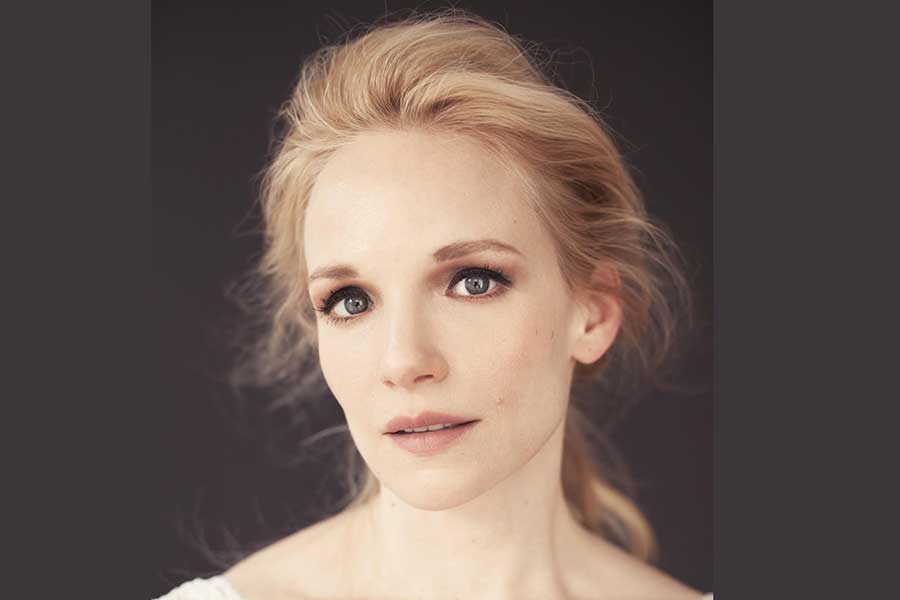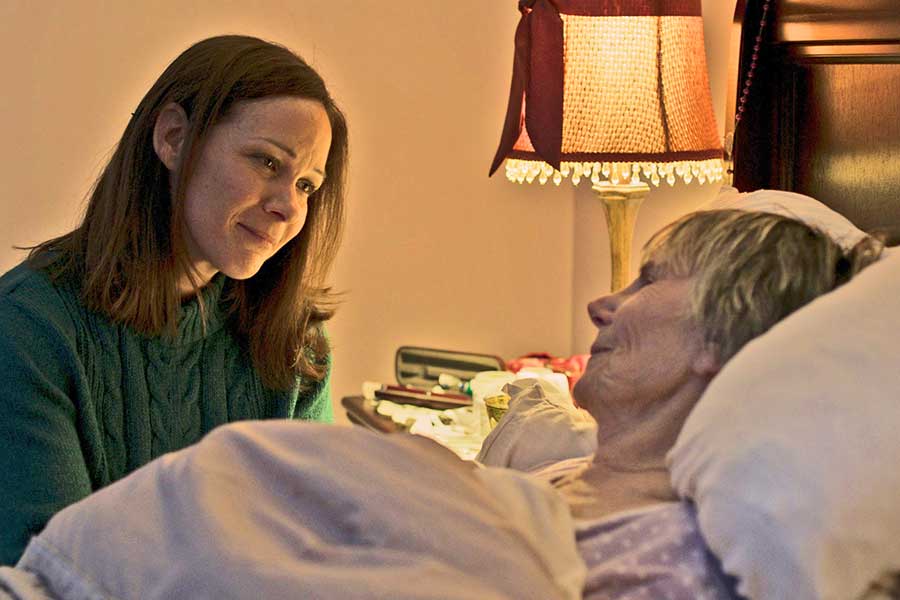Just in time for the Academy Awards, a heartfelt short film is generating much buzz among LGBT audiences and critics.
“Marguerite” is a French-language short about the friendship between an aging woman (the title character, played by Béatrice Picard) and her out lesbian nurse (played by Sandrine Bisson), whose conversations unearth a long-forgotten love story that helps the elderly patient make peace with her past.
The film was featured at numerous LGBT and general film festivals throughout 2018. It already has won many awards, including Audience Award for Best Short Film at the Perlen Film Festival, Audience Award for Best Short Film at the Proud Film Festival and Jury Award for Best Short Film at TWIST: Seattle Queer Film Festival.
“Marguerite” also is nominated for an Academy Award in the Live Action Short category. Canadian-born director and actor Marianne Farley, who also wrote the screenplay, said the film’s acclaim has been a pleasant surprise.
“It was a story I really felt I wanted to see on screen. It was a story I wrote for myself,” she said. “I started working on it and I shot it. I tried to make it as close to my sensibilities as possible. But, how people receive it is not under our control.”
The short made its first festival appearance in Taiwan within six months of its release, said Farley, adding she was concerned she’d made a film audiences didn’t understand, and that didn’t touch or move them.

Director and Actor Marianne Farley
“And then we won a prize, and it picked up from there.
“It’s a slow-paced film,” she continued. “It’s a deep film and it takes a while for people to understand it, I think.”
Indeed, it’s left to the viewer to fill in details of the narrative and the characters’ pasts and present — which was wholly intentional.
“I really wanted it to be subtle,” Farley said. “That’s the kind of film that moves me, where you see into the character’s psyche and you aren’t fed all the exposition, which is really hard to do. That was my number-one challenge making this film.”
She added that she didn’t base the story on real-life people as much as she did on the difference between her generation and those of previous eras.
“I absolutely made it up,” Farley said of the storyline. “It started from the idea that my grandmother’s generation was born into a completely different reality. I was born in the 1970s. And in my family there was no stigma around homosexuality, so I never understood that aspect of my mother’s generation where you were expected to get married and have kids and have the kind of life women had back then.
“I was thinking about how far we’ve come, and then the whole LBGT aspect of it came afterwards. I remember being a child and thinking, Why are people scared of homosexuals? What’s the big deal? Why is there a huge stigma around homosexuality?
“In recent years we’re talking more and more about it at the Oscars. A lot of films bring to the screen gay characters. Just, ‘Oh, by the way, they’re gay’ and it doesn’t have to be about that. It can be about other things.”
This Sunday’s Oscars broadcast comes with some baggage — including the lack of a host, which the program hasn’t been without since 1989.
Philadelphia’s own actor-comedian Kevin Hart originally was tapped to host the 91st Academy Awards, but stepped down in early December after controversy emerged over several tweets from 2010-11 in which he expressed antigay sentiments, including the use of the word “fag.” Hart issued a formal apology and stated he’d grown and changed since then.
Ellen DeGeneres, an open lesbian who has hosted the Oscars multiple times, supported Hart’s subsequent decision to again pursue the hosting role, and the Academy reportedly was game — but, due to continued controversy, he ultimately relinquished the pursuit.
In addition, no women were nominated for Best Director this year — a fact that isn’t lost on Farley, one of only a couple women directors with Academy-nominated films this time.
“I’m really sad that there aren’t more female directors nominated this year. It’s not like a committee getting together choosing a director. It’s people voting. It’s really tough because [my] film is getting coverage. I don’t want people to think it’s because I’m a female director. I hope that’s not why people are moved by the film. It’s a very sensitive issue, but we need to talk about it because there is a problem that there are only two female directors in the competition right now.”
Controversies aside, Farley said having her film up for such a prestigious award has validated her vision and the stories she wants to tell on camera
“If I write something that is really close to my values and heart, that can go a long way. It doesn’t mean that I can’t do an action or can’t do a comedy. But there has to be some kind of message or depth to what I am working on. That’s really important to me because that’s where my passion comes from. So I do think that will affect the next film that I’ll be working on. Content is super-important to me.”
Has being an Oscar nominee opened some doors for her professionally?
“I’ve had meetings with a lot of people,” Farley replied. “I think it’s harder for women to convince people in the industry that they can do their job as well as a man can. And because I’m an actress and I’ve been doing it for over 20 years now, for me going from one side to another and convincing people that I’m not just an actress trying to make it as a director, but that I have something to say, makes a huge difference.
“I think the narratives I feel closest to and the stories I want to tell show people who I am as a filmmaker. It’s really helping me to find my place in the industry.”
The 91st Academy Awards airs 8 p.m. Sunday on ABC.

